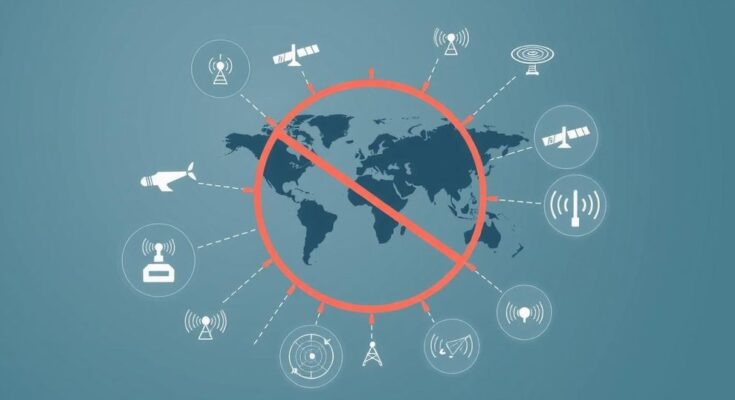Iranian human rights groups express deep concern over U.S. foreign aid cuts, warning that it will hinder the flow of information on human rights abuses amidst a government crackdown on dissent. The funding freeze has led to operational reductions for foreign-based organizations and has heightened the risks for activists in Iran.
In light of recent U.S. foreign aid cuts, Iranian human rights groups and activists express grave concerns regarding the potential stifling of information related to human rights abuses in Iran. This warning arises particularly amid a notable government crackdown on dissent, which has intensified.
On January 20, President Donald Trump enacted an executive order that suspended all American foreign aid from the State Department and USAID for a period of three months. The rationale behind this decision stems from the belief that foreign assistance agencies were not fully aligned with U.S. interests and, in some instances, contradicted “American values.”
The implications for Iran have been profound, with the government increasing its repression of journalists, civil society groups, and activists. Consequently, Iranian human rights organizations outside the country have had to reduce their operations, leading to layoffs and the suspension of essential initiatives. These funding cuts have severely restricted their abilities to track human rights violations and support civil liberties activism inside Iran.
This funding freeze coincides with a worsening economic crisis in Iran, where the national currency has significantly devalued, plunging from 32,000 to 584,000 rials per U.S. dollar since 2015. Additionally, Iranian authorities have intensified arrests, leading activists to fear further government repression.
Ali Vaez, the Iran project director for the International Crisis Group, noted, “Violators of human rights, you know, they’re like mushrooms. They grow in the dark. So if there is no light shed on what they’re doing, then they feel that they have a more open hand.”
Organizations monitoring Iran’s human rights situation, including various news outlets and civil society groups, are financed by the Near East Regional Democracy Fund (NERD), established after the 2009 protests. In 2024, the Biden administration proposed $65 million for this fund, which includes $16.75 million earmarked for internet freedom.
Iranian officials have leveraged the funding freeze to criticize U.S. foreign policy, with foreign ministry spokesperson Esmail Baghaei labeling the funds as “America’s interventionist policy,” alleging attempts to interfere with Iran’s domestic matters. According to Sanam Vakil of Chatham House, this funding has heightened Iranian paranoia, as it is perceived as a direct threat to national security.
Iranian security forces have increasingly targeted vocal critics of the government in the wake of recent political setbacks, particularly following the diminishing power of regional allies. A notable case is that of actress Soheila Golestani, who faces severe legal repercussions for her involvement in a film addressing social issues tied to protests stemming from the death of Mahsa Amini, indicating a broader trend of harsh penalties against dissent.
Golestani is currently on trial at the Revolutionary Court, confronting potential sentencing that includes 74 lashes and a year in prison for her portrayal of a family affected by the protests.
The cessation of U.S. foreign aid poses significant risks to human rights monitoring in Iran, as activists face increased governmental repression amid a financial crisis. The repercussions of this aid freeze are particularly concerning for organizations advocating for civil liberties, with the potential to stifle essential information about human rights violations. Furthermore, the situation reflects broader issues of U.S.-Iran relations and highlights the urgent need for ongoing support for civil society initiatives.
Original Source: www.newarab.com




